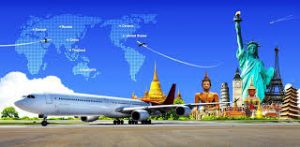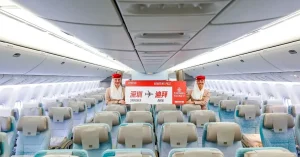As the industry is building its way towards recovery, how can we address some of the negative impacts we have seen in recent years and rethink more sustainable ways to travel?
In 2018, the travel industry accounted for about 8% of the world’s carbon footprint, air traffic alone for 2%. The United Nations urged the travel sector to halve its combined carbon emissions by 2035. People’s footprint when traveling can also lead to a range of negative impacts, from over-crowded places to tension with local communities, who in general do not benefit as much from spending made locally. However, with the start of the COVID-19 pandemic, travel has come to a near halt.
As the industry is building its way towards recovery, how can we address some of the negative impacts we have seen in recent years and rethink the way we travel to be more sustainable and responsible, thus having a positive environmental and social impact?
The new, sustainability-aware travelers
Travelers are increasingly concerned about the impact they could have even as traditional tourism and travel models are becoming increasingly unsustainable. To fully grasp this concept, travellers need to understand the A-Z of Sustainable tourism.
According to Booking.com’s 2018 Sustainable Traveler Report, travelers think they should act now to make sustainable travel choices. 68% would like the money they spend on holiday to go back to the local community, and 67% are willing to spend more to minimize the environmental impact of their travel.
The same survey found that almost one third of travelers weren’t aware that hotel properties can use eco-labels, while a similar proportion think travel companies should offer more sustainable travel options. The lack of relevant, reliable and transparent information emerged as a key problem for these sustainability-aware travelers when they try to book vacations.
This year’s global pandemic has reinforced this mindset even more. A survey from Publicis Sapient performed in April 2020, found out that 58% of people are thinking even more about the environment and sustainability than before the crisis.
However, it’s hard to make sure that traveler’s intentions match their actual behavior. An article from TNMT published in February 2020 relays that while 78% of air travelers said they would like to see sustainable options when booking flights, only 1% actually paid to offset the carbon impact of their trips.
Amadeus is exploring ways to develop the sustainable travel landscape
Over the past months, Amadeus has been interviewing environmental and social-conscious travelers to identify key pain points and needs. The first findings show that leisure travelers who have a high or medium sensitivity to environmental and social issues are influenced in their travel choices by issues such as pollution, conservation of biodiversity, landscapes and ecosystems as well as local purchasing.
In addition, thanks to an Amadeus survey run with participation from over 400 travelers from 4 different markets (UK, USA, France and Germany), Amadeus has evaluated the top criteria travelers want to see when booking travel products. The most important one is the willingness of the local population to welcome and host tourists. Indeed, if travelers feel welcome at their destination, they subsequently feel they have a positive impact on the local communities and ecosystems. Putting locals first seems to be the most common traveler definition of sustainable and responsible travel.
In this direction, Amadeus has interviewed some eco-friendly operators, who are specialized in sourcing travel products directly from locals, to define how to leverage this existing product catalog in our own ecosystem.
Another example of criteria that is being evaluated is flight carbon emissions. Guiding travelers to greener flights by giving them the option to compare emissions is one way to empower them to decrease their travel and tourism footprint. According to our first online test campaigns, it seems that travelers’ appetite for greener flights is real. Yet, further experiments need to be run before conclusions can be made. In parallel, some investigation is being done to see whether travel agents, airlines, hotels and other travel players would be interested in adding environmental and social impact features in their products.
There are already hundreds of sustainable and locally focused initiatives, startups and programs across the travel industry. In addition, some travel agents already offer tours that are eco-friendly and benefit local communities. By learning from them and working with like-minded partners and customers, Amadeus can leverage the knowledge across this sustainable travel ecosystem and complement it with recent findings.
Source: https://amadeus.com/en/insights/blog/how-can-we-make-travel-more-sustainable
By Gabrielle Sabatier;
Intrapreneur, Research Innovation and Ecosystem, Amadeus




